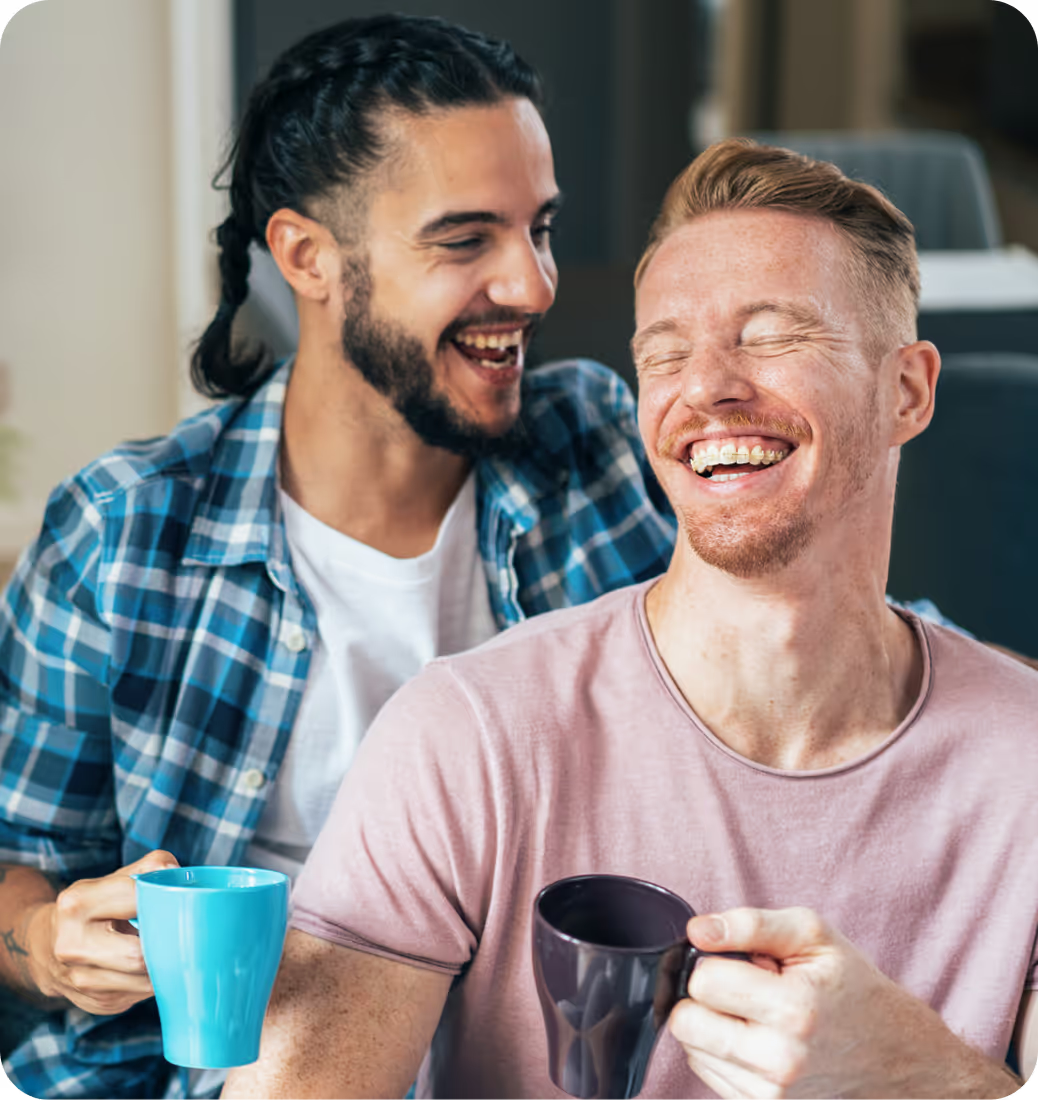Social, Biological, and Psychological Considerations in the Management of Generalized Anxiety
.png)
Generalized anxiety is a highly distressing and even debilitating problem for many. Much like other mental health problems, it often requires a bio-psycho-social approach to be fully managed. That is, it's important to approach anxiety as an issue with biological, social, and psychological components. These biological, social, and psychological considerations are outlined below.
Biological Considerations
There is a lot of research supporting the management of generalized anxiety through physical self-care. That being said, what does physical self-care look like when it comes to generalized anxiety? Well, we can take care of our bodies in a number of ways, but when it comes to our mental health (specifically, anxiety), there are three main factors that we should take into account: physical exercise, sleep, and nutrition.
Getting proper sleep is important because when we are sleep-deprived, we are more susceptible to psychological distress. This can come in the form of general irritability and increased symptoms of both anxiety and depression1. Furthermore, the relationship between sleep deprivation and anxiety is bi-directional; anxiety can also impact how much sleep we get2. That being said, it is important to manage sleep issues like insomnia in order to fully manage our anxiety, as well as manage our anxiety to improve our sleep issues.
Nutrition is another important component in the management of anxiety. Research has shown that diets containing sufficient amounts of magnesium, zinc, omega-3, and B-vitamins3 can help reduce anxiety. This is because these nutrients promote the release of chemicals (called neurotransmitters) that help with managing anxiety. Other ways that may help to manage anxiety through what we put in our bodies is to reduce the amount of caffeine and alcohol that we drink. Caffeine produces a stimulant effect, promoting alertness. This may be helpful when we need to focus on a task or feel awake, but this alertness can also contribute to feeling anxious. Alcohol, while it tends to relax us when we drink it, can actually increase anxiety overall (for example, the next day). This may be because alcohol alters serotonin production in the brain4.
Lastly, getting physical exercise is another essential component in the management of anxiety. When we exercise, our brain releases neurotransmitters that help in managing anxiety. These chemicals tend to become more active when we exercise, helping us feel calmer throughout the day. An example of a chemical in the brain that helps protect against anxiety is serotonin. When we exercise, serotonin levels are increased5, helping us feel less anxious throughout the day.
Social Considerations
We know that social connection plays a role in mental health overall. But what role does it specifically play in the management of anxiety?
Have you ever found yourself worrying incessantly about something, and after talking it over with a trusted friend or family member, it seemed like the problem wasn’t as alarming? It makes sense that talking to someone about something we are worrying about would make us feel better, as it enforces the idea that 1) we are not alone in dealing with the issue, and 2) there are other ways of looking at the problem, rather than the rigid thought process that our anxiety often leads to. Research has also shown that general social support (i.e. knowing we have people in our lives that we can rely on when needed) is associated with less anxiety. Perhaps this is because we know that if there is a problem, we have people to support us and offer alternative solutions and perspectives on it.
Psychological Considerations
When it comes to managing anxiety, psychological interventions are usually one of the first things we look for. Whether it be attending psychotherapy, using positive self-talk, or using a worry diary. All of these things can help us change our thinking patterns and help us feel more calm, reducing anxiety.
Other ways that we can manage our anxiety outside of therapy include meditation, practicing mindfulness, breath work6, and progressive muscle relaxation7. Meditation can help us feel calmer and more focused throughout the day, leading to less anxiety. Mindfulness, while related to meditation, can be done in any place and at virtually any time. Mindfulness is simply practicing awareness of the present moment. This means that we focus on our present environment and the sensations we feel. This makes sense, as when we are anxious, we are usually ruminating about something bad happening, taking our attention away from the present moment. Mindfulness can help us go against this, keeping us “grounded” in the present moment. As long as we are in a physically safe environment, we can remind ourselves that we are not in danger and give our mind and body permission to relax. Breath work and progressive muscle relaxation can also help relax us. These practices work by calming our bodies, signaling to our brains that our minds can relax too. Although most of these strategies take practice to get the hang of, continuous engagement in them is likely to lead to better management of anxiety over time.
Please keep in mind that the biological, social, and psychological considerations mentioned above are for the purpose of education. Please speak to your mental health provider or physician to identify safe and effective ways to manage your anxiety.
References
1 Babson, K. A., Trainor, C. D., Feldner, M. T., & Blumenthal, H. (2010). A test of the effects of acute sleep deprivation on general and specific self-reported anxiety and depressive symptoms: an experimental extension. Journal of behavior therapy and experimental psychiatry, 41(3), 297-303.
2 Shanahan, L., Copeland, W. E., Angold, A., Bondy, C. L., & Costello, E. J. (2014). Sleep problems predict and are predicted by generalized anxiety/depression and oppositional defiant disorder. Journal of the American Academy of Child & Adolescent Psychiatry, 53(5), 550-558.
3 Naidoo, U. (2019, August 28). Nutritional strategies to ease anxiety. Harvard Health.
4 National Institutes of Health Clinical Center (CC). (2001, March 1). Serotonin in Alcoholism. clinicaltrials.gov.
5 Young, S. N. (2007). How to increase serotonin in the human brain without drugs. Journal of psychiatry & neuroscience: JPN, 32(6), 394.
6 Cho, H., Ryu, S., Noh, J., & Lee, J. (2016). The effectiveness of daily mindful breathing practices on test anxiety of students. PloS one, 11(10), e0164822.
7 Carver, M. L., & O’Malley, M. (2015). Progressive muscle relaxation to decrease anxiety in clinical simulations. Teaching and Learning in Nursing, 10(2), 57-62.
Looking for a Therapist?
Our team comprised of experienced therapists who are prepared to support a range of psychological concerns and personal challenges. Our clinic provides virtual psychotherapy across Ontario.
Join the Optimization Journey.
Discover how our tailored therapeutic approaches can support your personal growth and well-being.
Stay updated with our latest insights and tips. Subscribe to our newsletter today!






.png)

.png)


.svg)
.svg)
.svg)
